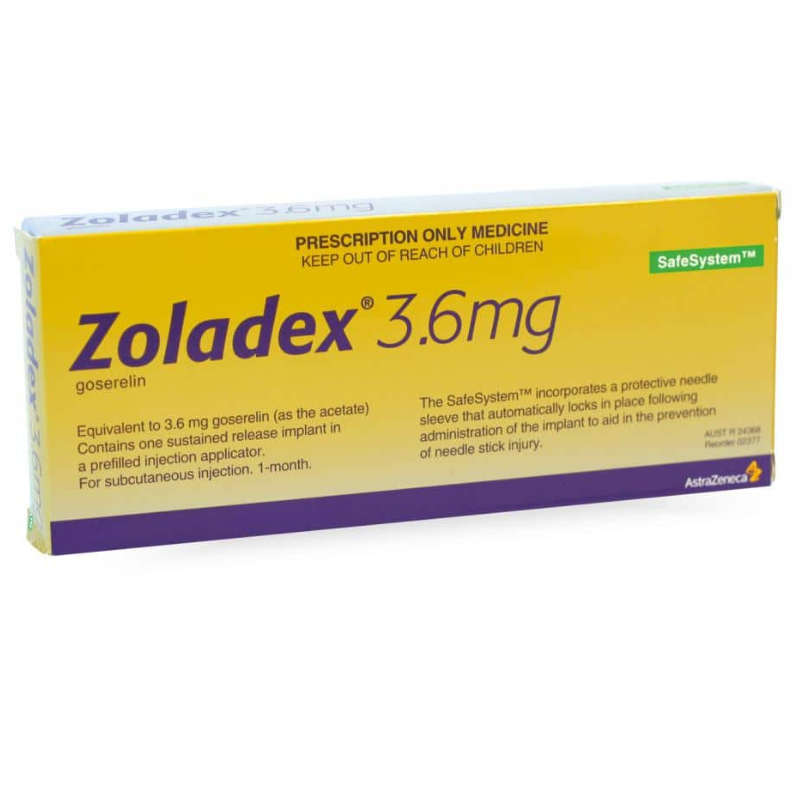Imuran 50 mg Tablet (Azathioprine)
₨6,700.00
Imuran 50mg tablet contains Azathioprine which is now available in Pakistan at Online Pharmacy. The price range of the Imuran Tablet in Pakistan is Rs 5,700/- to Rs 7,700/-.
Product Description:
Brand: Imuran 50mg Tablet
Packet Size: 100 tablets
Active ingredient: Azathioprine
Manufacturer: EXCELLA GmbH & Co. KG
Treatment: Auto Immune System
Additional Details
Uses of the Imuran Tablets
Imuran tablets, known generically as azathioprine, are utilized in the treatment of a range of autoimmune and inflammatory conditions.
Preventing Organ Rejection: If you have received a kidney transplant, Imuran is used to help prevent organ rejection. It’s typically taken alongside other medications to help your new kidney function properly.
Treating Rheumatoid Arthritis: For active rheumatoid arthritis, Imuran is employed to alleviate symptoms like joint swelling, pain, fatigue, and morning stiffness.
Treating Multiple Sclerosis: While not specifically FDA-approved for multiple sclerosis (MS), azathioprine has been used in some MS patients, especially those who have issues with standard FDA-approved medications. It has been shown to reduce the frequency of flare-ups in patients with relapsing-remitting MS and decrease the formation of new lesions as seen on MRI scans.
Treating Other Inflammatory Conditions: Imuran is also used in the treatment of various other inflammatory conditions, including dermatomyositis, systemic lupus erythematosus (lupus), inflammatory bowel disease, and vasculitis (inflammation of the blood vessels).
How Does Imuran Tablet Work?
Imuran tablet functions by suppressing your immune system. This action is particularly helpful in cases such as organ transplants, where it helps your body in accepting the new organ, or in conditions requiring the reduction of inflammation. The exact way Imuran works is not completely understood, but it is believed to interfere with the creation of DNA molecules. This interference plays a key role in suppressing the immune system, helping in the management of conditions where immune response moderation is necessary.
How Should You Take Imuran Tablets?
To ensure the effectiveness and safety of Imuran Tablets, it’s essential to take them exactly as prescribed by your doctor or advised by your pharmacist. If you’re unsure about the dosage or method, always check with your healthcare provider.
The amount of Imuran Tablets you need to take can vary and will be specifically prescribed by your doctor based on the condition you’re being treated for. You have the option to take Imuran Tablets with food or on an empty stomach but try to be consistent with your choice each day. If you experience nausea when starting Imuran Tablets, taking them after food may help alleviate this.
Regular blood tests will be necessary when you’re on Imuran Tablets. These tests are done to monitor the number and type of cells in your blood and to check that your liver is functioning properly. Your doctor might also request other blood and urine tests to see how your kidneys are working and to measure uric acid levels, as these can rise while you’re taking Imuran Tablets. High levels of uric acid can harm your kidneys, so your doctor may adjust your dose based on these test results.
Always swallow your tablets whole; do not chew, break, or crush them. If you or your caregiver handle broken tablets, wash your hands immediately afterwards. For further advice on safe handling or any other concerns, consult your doctor or pharmacist.
Recommended Dosage Imuran 50mg Injection
For Adults Who Have Had an Organ Transplant:
On the first day of treatment, the usual dose is up to 5 mg per kilogram of your body weight.
Following that, the typical daily dose ranges from 1 mg to 4 mg per kilogram of your body weight. Your doctor will adjust the dose during treatment based on how you respond to the medicine.
For Adults with Other Conditions:
The usual starting dose is between 1 mg and 3 mg per kilogram of your body weight.
The regular daily dose then usually ranges from less than 1 mg to 3 mg per kilogram of your body weight.
As with transplant patients, your doctor will adjust the dose during treatment depending on your response to the medicine.
If You Are an Elderly Patient:
You may need a reduced dose, tailored to your specific health needs and responses.
Always follow your doctor’s instructions regarding the dosage of Imuran, and if you have any concerns or questions about your dosage, don’t hesitate to consult with your healthcare provider.
Warnings and Precautions
Before you start taking Imuran Tablets, it’s important to discuss the following with your doctor or pharmacist:
If you have recently been vaccinated or are scheduled to receive a vaccine. While taking Imuran Tablets, you should avoid live organism vaccines (like the flu vaccine, measles vaccine, BCG vaccine, etc.) until your doctor advises that it is safe. This is because some vaccines might cause an infection if taken while you are on Imuran Tablets.
If you have Lesch-Nyhan Syndrome, a rare genetic condition characterized by a deficiency of an enzyme called hypoxanthine-guanine-phosphoribosyl transferase (HPRT).
If you have liver or kidney problems.
If you have a genetic condition known as TPMT deficiency, where your body produces insufficient amounts of the enzyme thiopurine methyltransferase.
If you have ever had chickenpox or shingles.
If you have had hepatitis B, as this is a liver disease caused by a virus.
If you are going to have surgery. Since certain muscle relaxants used during operations, such as tubocurarine or succinylcholine, may interact with Imuran Tablets, it’s crucial to inform your anesthesiologist about your treatment with Imuran Tablets before any surgical procedure.
Always take these precautions seriously and keep your healthcare providers informed about your medical history and current health status for safe and effective treatment with Imuran Tablets.
Possible Side Effects of Imuran Tablets
While taking Imuran Tablets, you might encounter a range of side effects. Here’s a breakdown based on their frequency:
Very Common (affecting more than 1 in 10 people):
A low white blood cell counts in your blood tests, which could make you more prone to infections.
Common (affecting up to 1 in 10 people):
Nausea, where you might feel sick.
Uncommon (affecting up to 1 in 100 people):
Anemia is indicated by a low red blood cell count.
Pancreatitis, which is inflammation of the pancreas and may lead to severe upper stomach pain.
Rare (affecting up to 1 in 1,000 people):
You may experience some hair loss while on Imuran Tablets. Often, hair growth resumes, even if you continue taking the medication. If this concerns you, it’s best to talk to your doctor.
Very Rare (affecting up to 1 in 10,000 people):
Bowel problems lead to symptoms such as diarrhea, abdominal pain, constipation, and feeling or being sick, which could be signs of bowel perforation.
Remember, not everyone will experience these side effects, but it’s important to be aware of them. If you experience any severe or concerning symptoms, you should consult your doctor immediately.
Can We Use Other Medicines with Imuran 50mg Tablets?
It’s important to talk to your doctor about all the medicines you’re taking before starting Imuran (azathioprine) tablets. This includes any medicines you currently take, recently took or might take in the future.
Because Imuran can affect how some other medicines work, and vice versa. This means they could become less effective or have stronger side effects.
Here are some specific medicines you should tell your doctor about:
Ribavirin: Used for viral infections.
Methotrexate: Used for cancers.
Gout medicines: Allopurinol, oxipurinol, thiopurinol, or febuxostat.
Penicillamine: Used for rheumatoid arthritis.
High blood pressure medicines: ACE inhibitors.
Blood thinners: Warfarin or acenocoumarol.
Stomach medicines: Cimetidine.
Pain relievers: Indomethacin.
Cancer medicines: Cytostatic drugs.
Ulcerative colitis/Crohn’s disease medicines: Aminosalicylates like olsalazine, mesalazine, or sulfasalazine.
Antibiotics: Trimethoprim/sulfamethoxazole.
Infliximab: Used for ulcerative colitis/Crohn’s disease.
Muscle relaxants: Tubocurarine or succinylcholine (used during surgery).
Before any surgery, tell your anesthesiologist you’re taking Imuran. This is because muscle relaxants used during anesthesia can interact with it.
Can Alcohol Drinker Take Imuran 50mg Tablet?
It’s important for you not to consume more alcohol than the recommended safe limits. It’s also a good idea to have days when you don’t drink any alcohol, rather than saving up your units to drink all at once. If you’re worried about how much alcohol you’re consuming, it’s a good idea to talk to your healthcare provider. It’s worth noting that alcohol does not interfere with the effectiveness of azathioprine.
Can You Take Imuran Tablet If You’re Pregnant?
If you are pregnant, planning to become pregnant, think you may be pregnant or are currently breastfeeding, it’s important to seek advice from your doctor before using this medication.
Regarding Pregnancy:
Reliable contraceptive measures should be taken to prevent pregnancy while you or your partner are using Imuran Tablets. If you are already pregnant, your doctor will carefully assess whether it’s appropriate for you to take this medicine based on the potential risks and benefits of treatment.
Regarding Breastfeeding:
Small amounts of Imuran may pass into breast milk. It is recommended that women who are taking Imuran should generally avoid breastfeeding unless the benefits significantly outweigh the potential risks to the child. For personalized guidance on breastfeeding while using Imuran, consult your doctor.











Murtaza Khalil –
received on time product delivery!
Raza Ahmed –
quick delivery and effective product!!